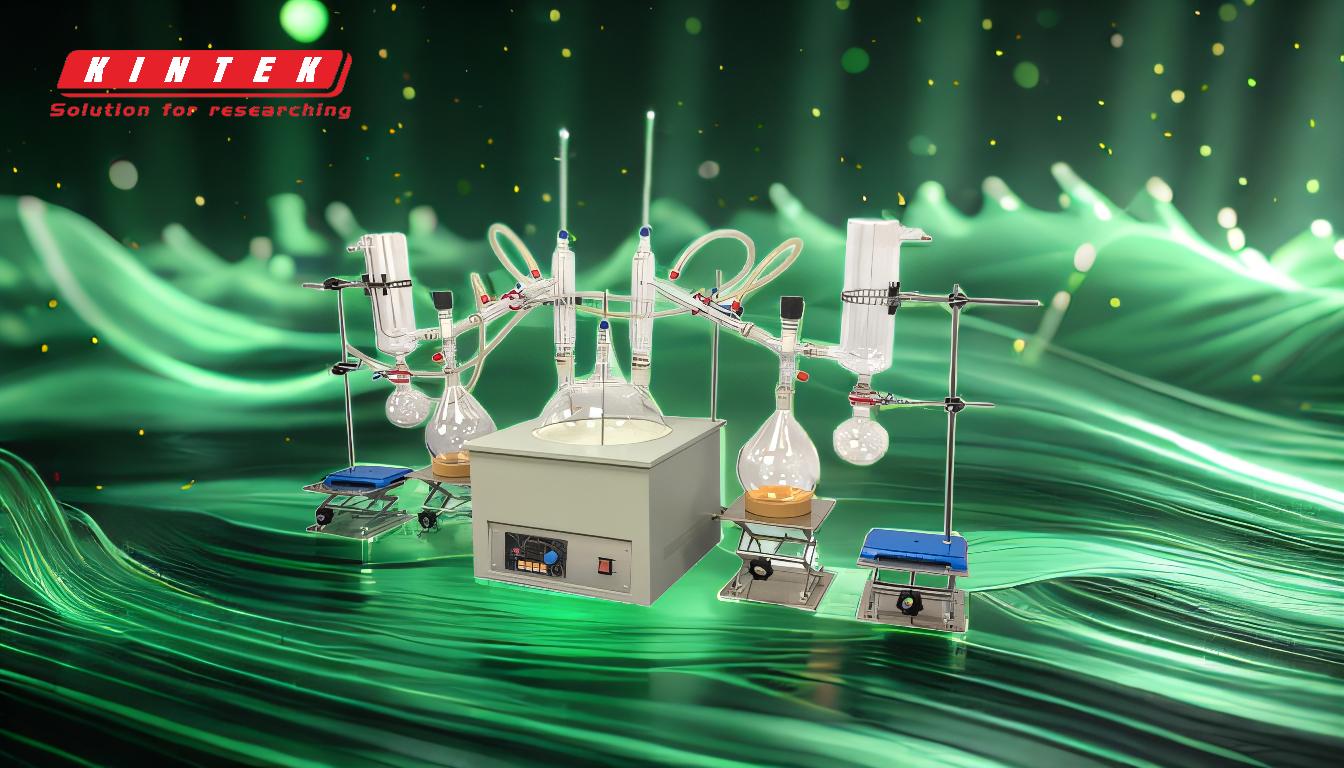Vacuum distillation is indeed more energy-efficient compared to traditional distillation methods. By operating under reduced pressure, vacuum distillation lowers the boiling points of compounds, allowing the process to occur at lower temperatures. This reduces the energy required to heat the mixtures, minimizes thermal degradation of sensitive compounds, and enhances the purity and yield of the distillate. Additionally, vacuum distillation systems often have shorter residence times, further reducing energy consumption and improving efficiency. While the operating costs may be slightly higher due to the need for vacuum systems, the overall energy savings and improved product quality make it a more efficient and cost-effective method for many industrial applications.
Key Points Explained:

-
Lower Boiling Points Under Vacuum:
- Vacuum distillation operates under reduced pressure, which significantly lowers the boiling points of the compounds being distilled. This means that less energy is required to achieve the necessary temperatures for separation.
- Example: In cannabis distillation, the reduced boiling points prevent thermal degradation of sensitive compounds like THC, resulting in high-purity products without the need for excessive heat.
-
Reduced Energy Consumption:
- By lowering the boiling points, vacuum distillation reduces the amount of energy needed to heat the sample mixtures. This is particularly beneficial for large-scale industrial processes where energy costs are a significant factor.
- Example: Short-path distillation saves energy by operating under a vacuum, which reduces the energy required to heat solvents and separate compounds.
-
Prevention of Thermal Degradation:
- Lower operating temperatures in vacuum distillation prevent the degradation of heat-sensitive compounds. This is crucial for industries dealing with organic or sensitive materials, such as pharmaceuticals or cannabis.
- Example: In high vacuum distillation, the low distilling temperatures and short residence times ensure that organic or silicon compounds are not damaged during the process.
-
Increased Purity and Yield:
- The reduced pressure and lower temperatures in vacuum distillation lead to higher purity and yield of the distillate. This is because the process minimizes unwanted reactions or polymer formation that can occur at higher temperatures.
- Example: Vacuum distillation in cannabis processing results in fully decarbed, high-purity THC products, which are more valuable and effective.
-
Shorter Residence Times:
- Vacuum distillation systems often have shorter residence times compared to traditional methods. This means that the compounds spend less time in the distillation column, reducing the risk of degradation and further saving energy.
- Example: High vacuum distillation maintains short residence times, which not only protects the compounds but also enhances the overall efficiency of the process.
-
Cost-Effectiveness and Flexibility:
- While vacuum distillation systems may have slightly higher operating costs due to the need for vacuum equipment, they are generally more cost-effective in the long run. The energy savings, increased yield, and higher product quality often outweigh the initial costs.
- Example: Vacuum distillation in cannabis processing is cost-effective compared to other methods and allows for easy modifications to the system, making it adaptable to various production needs.
-
Molecular Distillation Efficiency:
- Molecular distillation, a type of vacuum distillation, operates away from the boiling point of the material. This method uses the difference in the average free range of molecular motion for separation, significantly reducing energy consumption as the material does not need to reach a boiling state.
- Example: Molecular distillation saves energy by not requiring the material to reach its boiling point, making it an efficient method for separating compounds with minimal energy input.
In summary, vacuum distillation is more energy-efficient due to its ability to operate at lower temperatures, reduce energy consumption, prevent thermal degradation, and increase product purity and yield. These advantages make it a preferred method for many industrial applications, especially those involving sensitive or high-value compounds.
Summary Table:
| Advantage | Description |
|---|---|
| Lower Boiling Points | Operates under reduced pressure, lowering boiling points and reducing energy use. |
| Reduced Energy Use | Less energy required to heat mixtures, saving costs in large-scale processes. |
| Prevents Thermal Damage | Lower temperatures protect heat-sensitive compounds like THC or pharmaceuticals. |
| Higher Purity & Yield | Minimizes unwanted reactions, producing purer and higher-yield distillates. |
| Shorter Residence Times | Compounds spend less time in the system, reducing degradation and energy use. |
| Cost-Effective | Energy savings and improved product quality outweigh initial operating costs. |
| Molecular Distillation | Separates compounds without boiling, saving energy and improving efficiency. |
Ready to optimize your distillation process? Contact our experts today to learn more about vacuum distillation solutions!











